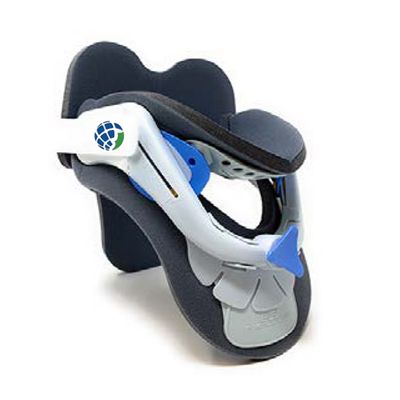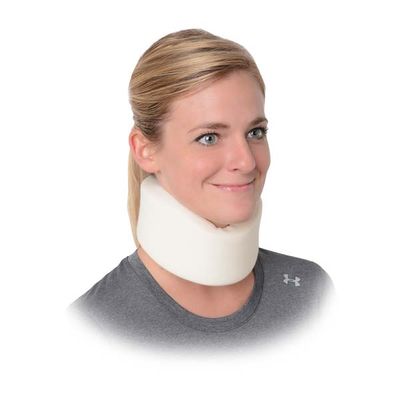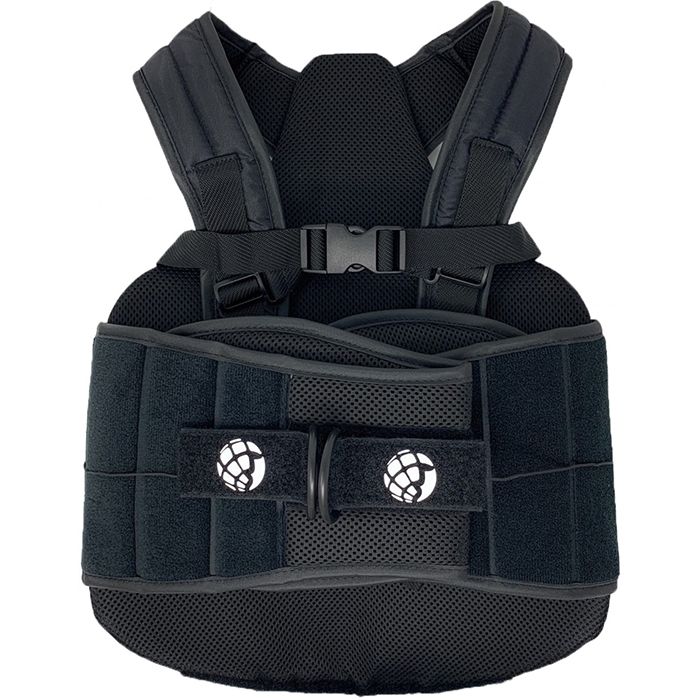Orthopedic Shoulder Brace
An orthopedic shoulder brace is a medical device designed to support, stabilize, and protect the shoulder joint. It is commonly used for individuals recovering from shoulder injuries, surgery, or for those experiencing chronic conditions such as arthritis or rotator cuff problems.
Types of Orthopedic Shoulder Braces
Immobilizer Braces
- Used to keep the shoulder joint stable and limit movement following surgery, dislocation, or a significant injury.
- Often comes with an arm sling to support the arm and shoulder.
- Helps reduce pain and promote healing by immobilizing the affected area.
Stabilizing Braces
- Provide support to the shoulder joint while allowing some movement.
- Often used for conditions like shoulder instability, subluxation, or partial dislocations.
- Helps keep the shoulder in a proper position during physical activities.
Compression Sleeves
- Provide light support and compression to reduce swelling and pain.
- Typically used for minor injuries, inflammation, or conditions like bursitis and tendonitis.
- Can be worn during activities to help manage pain and provide mild support.
Posture Corrector Braces
- Designed to improve posture by pulling the shoulders back and aligning the spine.
- Can help alleviate shoulder and upper back pain associated with poor posture.
- Often used by individuals who spend long hours sitting or working at a desk.
Rotator Cuff Braces
- Specifically designed to support the rotator cuff muscles and reduce strain during movement.
- Often used for conditions such as rotator cuff tears, strains, or tendinitis.
- Helps limit excessive shoulder movement that can aggravate the injury.
Benefits of Using an Orthopedic Shoulder Brace
- Pain Relief: Helps reduce pain associated with shoulder injuries, arthritis, or muscle strain.
- Enhanced Stability: Provides support to weakened or unstable shoulder structures, allowing for safer movement.
- Protection During Recovery: Helps prevent further injury by stabilizing the shoulder joint while it heals.
- Improved Posture: Some shoulder braces can help improve posture by keeping the shoulders in a proper alignment.
- Support During Activities: Allows individuals to continue participating in physical activities or sports while managing shoulder conditions.
Indications for Use
- Dislocations or Subluxations: Shoulder braces can help stabilize the joint after a dislocation or if the shoulder is prone to subluxations (partial dislocations).
- Post-Surgical Recovery: Often used following shoulder surgeries such as rotator cuff repair, labral repair, or shoulder replacement.
- Rotator Cuff Injuries: Provides support for rotator cuff tears, strains, or inflammation.
- Arthritis: Helps manage pain and inflammation associated with osteoarthritis or rheumatoid arthritis in the shoulder joint.
- Shoulder Instability: Used for conditions that cause the shoulder to feel loose or prone to dislocating.
- Fractures or Soft Tissue Injuries: Supports healing of fractures in the collarbone or upper arm, as well as soft tissue injuries.
Considerations When Choosing a Shoulder Brace
- Type of Injury or Condition: Choose a brace that fits the specific shoulder issue (e.g., immobilizer for post-surgery, compression sleeve for inflammation).
- Level of Support Needed: Depending on the severity of the condition, select a brace that provides the appropriate level of support.
- Comfort and Fit: The brace should fit snugly without causing discomfort. Some braces are adjustable to accommodate different body types.
- Material: Look for breathable and lightweight materials to prevent irritation, especially if the brace will be worn for extended periods.
Tips for Using an Orthopedic Shoulder Brace
- Follow Medical Advice: Wear the brace as directed by a healthcare professional.
- Adjust for Comfort: Make sure the brace is not too tight, which can restrict circulation, or too loose, which may reduce its effectiveness.
- Regular Maintenance: Keep the brace clean and inspect it regularly for signs of wear and tear.
- Complementary Treatments: Use the brace along with physical therapy exercises to strengthen the shoulder and improve recovery.
Orthopedic shoulder braces are versatile tools that aid in the treatment and prevention of various shoulder conditions. They provide essential support, help manage pain, and protect the shoulder during recovery or physical activity.
TLSO Back Brace - Universal Size
A TLSO Back Brace (Thoraco-lumbosacral Orthosis) is a spinal brace that supports the thoracic (mid-back), lumbar (lower back), and sacral (pelvic) regions. It's designed to immobilize and stabilize the spine in patients recovering from spinal injuries, surgeries, or conditions such as scoliosis, herniated discs, or fractures.
SUGGESTED HCPC: 5027 - L0627 and L0642, 5031 - L0631 and L0648, 5037 - L0637 and L0650, 5039 - L0639 and L0651, 5056 - L0456 and L0457
ORDER NUMBER: 5027, 5031, 5037, 5039, 5056
SIZE: Universal (see sizing chart to the left)
PRODUCT HIGHLIGHTS:
• Available in 5 versions
• 5027 has a 10" back panel; the 5031 has a 14" back panel; the 5037 has a 14" back panel plus side panels; the 5039 has a 14" back panel, side panels and front panel; and the 5056 has a 14" back panel and shoulder straps
• Universal sizing system
• Adjustable pull handles to allow for optimal compression
• Breathable fabric allows air flow to keep patients cool and dry over long periods of time
INDICATIONS:
Spinal Stenosis, Spondylolisthesis, Spondylolysis, Chronic Back Pain, Spinal Instability, Post-Op Disc Surgery, Facet Syndrome, Degenerative, Hemiated, Bulging Disc, Post-Operative Lumber Fusion.
SUGGESTED HCPC: 5027 - L0627 and L0642
5031 - L0631 and L0648
5037 - L0637 and L0650
5039 - L0639 and L0651
5056 - L0456 and L0457



Wrist and Hand Braces: Support, Relief, and Rehabilitation for Hand and Wrist Conditions
Wrist and Hand Braces Introduction Wrist and hand braces are essential tools for individuals managing pain, recovering from injuries, or dealing with chronic conditions such as carpal tunnel syndrome, arthritis, or tendonitis. These braces provide stability, compression, and support to… Continue Reading…

Orthopedic Shoulder Braces: Support for Shoulder Injuries and Chronic Conditions
Orthopedic Shoulder Braces Introduction Orthopedic shoulder braces are designed to provide support and stabilization for individuals recovering from shoulder injuries, managing chronic shoulder pain, or undergoing post-surgical rehabilitation. These braces help alleviate discomfort, protect the shoulder joint, and prevent further… Continue Reading…

Orthopedic Knee Braces: Types, Benefits, and How to Choose the Right One
Orthopedic Knee Braces Introduction Orthopedic knee braces are essential devices for individuals recovering from knee injuries, managing chronic pain, or undergoing rehabilitation after surgery. These braces offer support, stability, and protection, helping to improve mobility and alleviate discomfort. Whether you… Continue Reading…


